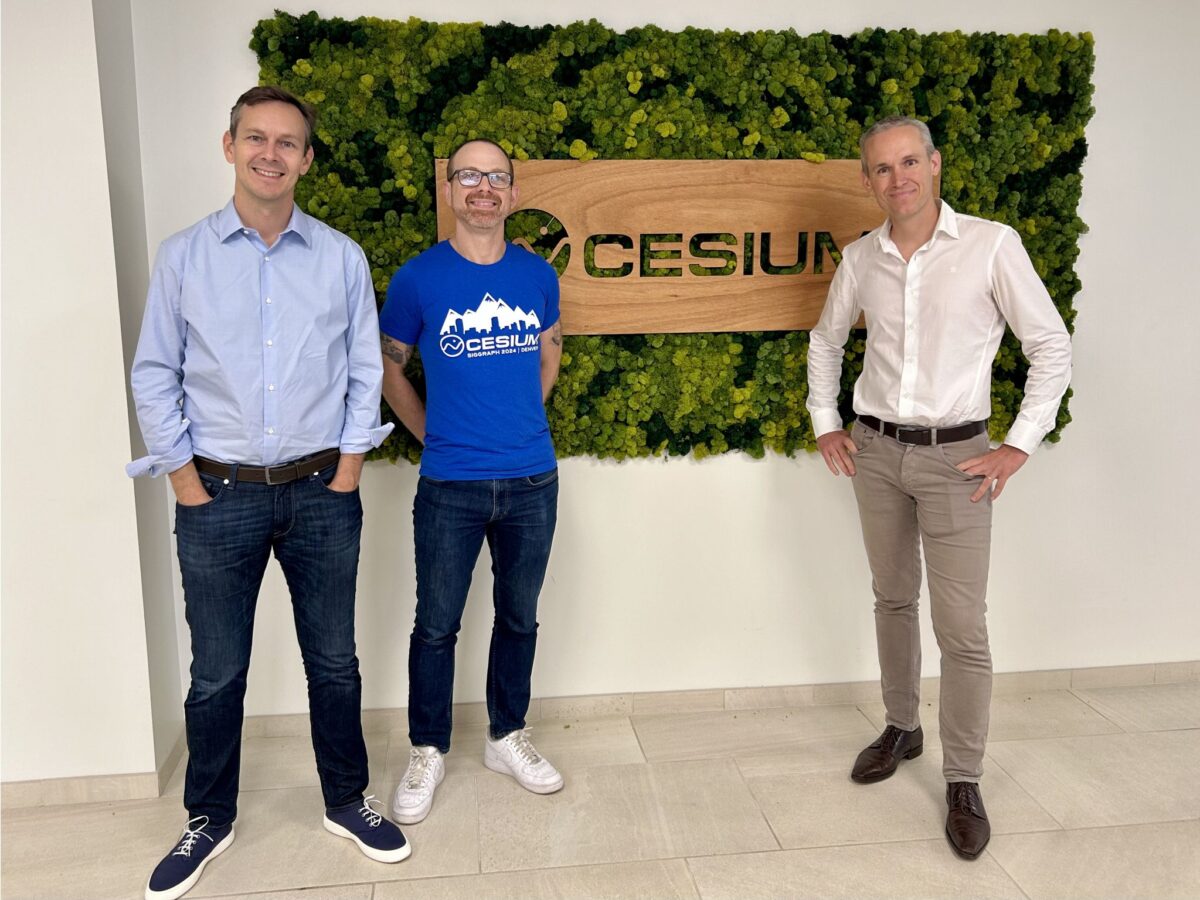Open source software brought these two companies together and now they’re making it official.
Exton-based infrastructure engineering software company Bentley Systems acquired Old City-based 3D geospatial platform Cesium, the companies announced last week. After working together for years as partners, the companies ultimately decided they would fit together better under the same roof.
Cesium’s products could increase the 3D geospatial capabilities of Bentley’s platform, and the companies share a mission to spread open source, Patrick Cozzi, CEO of Cesium, told Technical.ly.
“[Bentley Systems] loved the philosophy, not just the technology, but this philosophy that we do open source, we create open standards,” Cozzi said.
GitHub, a platform where users can share and collaborate on code projects, released a report in 2022 saying that over 90% of companies use open-source software. Companies often use open-source software because it is more cost-effective, speeds up a project process and comes with community support, according to Statista.
Cesium started as a project at Exton-based Analytical Graphics Inc., which developed software for aerospace engineers, to build 3D geospatial visualizations. 3D visualizations created by the company can be used to build the landscape for sensors on autonomous vehicles, for example. It spun out as its own company in 2019.
The company’s 3D visualization product, including its industry-standard 3D tile file format, has always been open source, meaning any developers could use it for their own projects. Bentley Systems, which provides software for engineers, architects and construction professionals, has been working with Cesium since 2016, using the 3D tile format to visualize roads, bridges and buildings.
The companies started talking seriously about integrating since the beginning of the year. They declined to share details about the terms of the deal.
Both companies hope they can expand the open standards ecosystem and according to Cozzi, “[allow] software to interoperate and be open and empower users to own their data.”
All 60 of Cesium’s employees will be brought over to Bentley, joining a 5,200-person global workforce. Cozzi’s new title will be chief platform officer at Bentley.
Two Philly-area companies collide after decades of community support
Over the years, Cesium has supported the tech community through meetups, conferences, hosting school tours and partnering with orgs, like Cozzi’s 3D modeling nonprofit CreateAccess and Black tech professionals group Black Tech Philly.
The company doesn’t plan to stop engaging with the community, Cozzi said.
“We’re big believers in the potential of technology here in Philadelphia, and we want to continue to be a hub and to dial that up,” he said.
While Bentley is headquartered in Chester County, the company has a Center City office it uses to maintain a presence in Philadelphia. Bentley has hosted its own STEM education initiatives in the past and is also committed to working with the local community and bringing those initiatives over, Julien Moutte, CTO of Bentley Systems, told Technical.ly
Keith Bentley founded Bentley Systems with his brothers in 1984. It opened its Philadelphia office in 2012 and the company went public in 2020 at a nearly $5 billion valuation.
Bentley designs software products for engineers and construction firms, such as the Bentley Infrastructure Cloud which consolidates all the parts of a project under one place and MicroStation, an infrastructure design software.
Its platform iTwin integrates all its products together and allows engineers to collaborate with each other, Moutte said. With iTwin, users create digital twins, virtual versions of items, systems or processes, and Cesium’s geospatial products will integrate with its engineering, subsurface, internet of things, reality and enterprise data, he said.
Bentley saw that Cesium’s products have been useful to a variety of industries and the goal is to co-create a platform that will apply to many different use cases, Moutte said. For example, the construction equipment manufacturer Komatsu uses Cesium’s tech to monitor construction sites and compare data.
“We really expect that creating that platform together,” Moutte said, “and having this open approach is going to encourage a wide ecosystem of developers to come and pile on and deliver even more value.”
Sarah Huffman is a 2022-2024 corps member for Report for America, an initiative of The Groundtruth Project that pairs young journalists with local newsrooms. This position is supported by the Lenfest Institute for Journalism.Before you go...
Please consider supporting Technical.ly to keep our independent journalism strong. Unlike most business-focused media outlets, we don’t have a paywall. Instead, we count on your personal and organizational support.
3 ways to support our work:- Contribute to the Journalism Fund. Charitable giving ensures our information remains free and accessible for residents to discover workforce programs and entrepreneurship pathways. This includes philanthropic grants and individual tax-deductible donations from readers like you.
- Use our Preferred Partners. Our directory of vetted providers offers high-quality recommendations for services our readers need, and each referral supports our journalism.
- Use our services. If you need entrepreneurs and tech leaders to buy your services, are seeking technologists to hire or want more professionals to know about your ecosystem, Technical.ly has the biggest and most engaged audience in the mid-Atlantic. We help companies tell their stories and answer big questions to meet and serve our community.
Join our growing Slack community
Join 5,000 tech professionals and entrepreneurs in our community Slack today!

The person charged in the UnitedHealthcare CEO shooting had a ton of tech connections

From rejection to innovation: How I built a tool to beat AI hiring algorithms at their own game

Where are the country’s most vibrant tech and startup communities?




